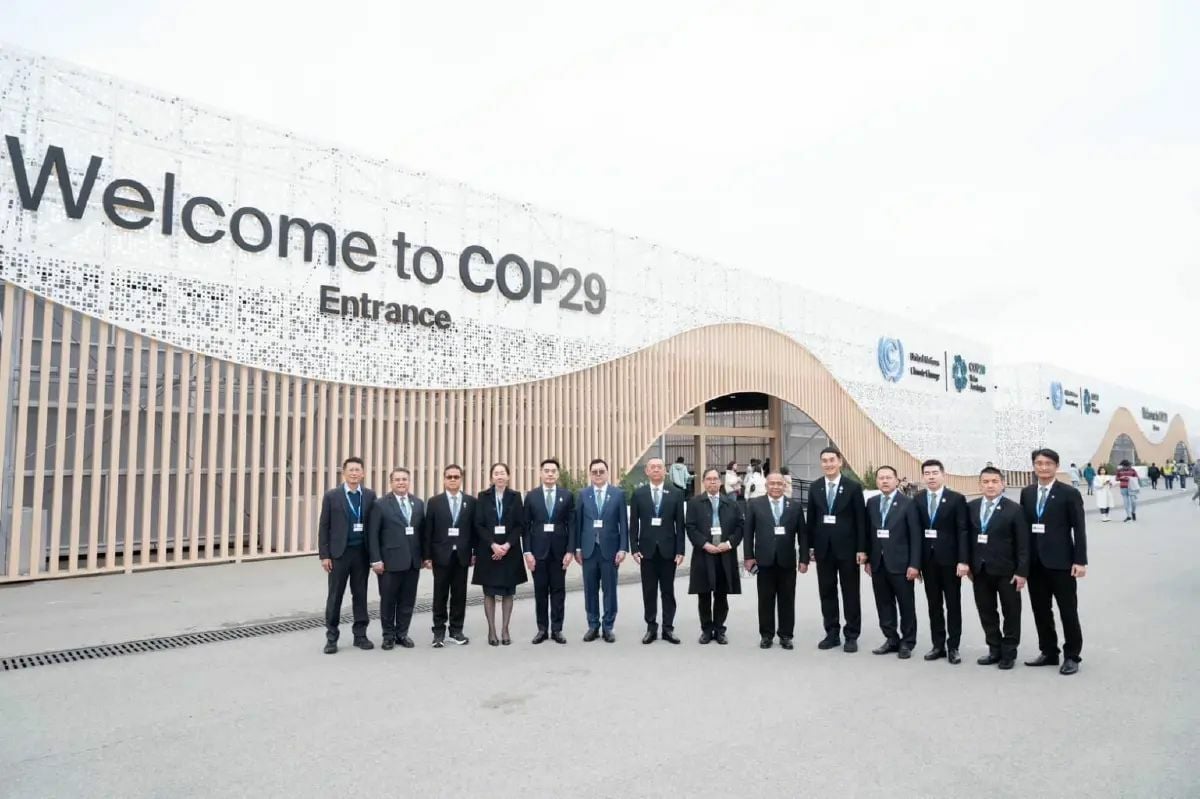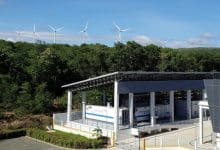Thailand commits to carbon neutrality despite COP29 setbacks

Thailand remains firmly committed to reducing carbon dioxide emissions despite a lacklustre conclusion to the UN Climate Change Conference (COP29) held recently in Baku, Azerbaijan. The country is determined to accelerate its progress towards carbon neutrality despite limited new financial agreements at the conference aimed at supporting developing nations in their climate change efforts.
Natural Resources and Environment Minister Chalermchai Sri-on, who participated in the conference from November 11 to 22, highlighted the urgency of achieving Thailand’s carbon neutrality goal. He emphasised the need for intensified efforts in reducing carbon emissions, as Thailand is particularly vulnerable to the effects of climate change.
Thailand had previously committed to balancing carbon emissions and absorption by 2050 during COP26. Despite the limited financial aid approved at COP29, the country remains steadfast in its promise to take stronger measures to reach this target.
Former premier Prayut Chan-o-cha pledged at COP26 in 2021 that Thailand would address climate change more aggressively, aiming for carbon neutrality by 2050 and a net-zero target by 2065.
Chalermchai underscored the importance of adequate funding for initiatives promoting eco-friendly businesses. The energy sector, in particular, requires significant investment to transition to green technologies such as solar power plants with energy storage systems.
Chaya Chandavasu, Senior Executive Vice President for corporate strategy at PTT Plc, echoed this sentiment, noting that financial support from developed countries is crucial for developing nations to achieve carbon-neutral and net-zero targets.
“If renewable energy development projects in developing countries are financed by developed countries, the former countries are more likely to attain carbon neutral and net-zero targets.”
Funding falls short
At COP29, discussions predominantly focused on finance and funding, with industrialised nations committing US$300 billion annually to assist developing countries. However, analysts argue that this amount is insufficient given the escalating impact of climate change.

Global climate finance assists developing countries in managing severe flood and drought-related losses and implementing projects to curb temperature rises worldwide. The Paris Agreement, established at COP21 in 2015, set a goal to limit global warming to 1.5 degrees Celcius (°C) above pre-industrial levels.
Without more robust efforts to reduce CO2 emissions, global temperatures could surpass this threshold within a decade, according to Anothai Sangthong from the Thailand Greenhouse Gas Management Organization.
The concerns raised at COP28 in Dubai led Thailand to set a more ambitious target for its greenhouse gas reduction campaign. Chalermchai announced at COP29 that Thailand aims to reduce up to 270 million tonnes of greenhouse gas emissions by 2035. This target is outlined in the nationally determined contributions (NDCs), which detail action plans for emission reductions.
The TGO developed the NetZero Man app to help individuals measure their carbon footprint daily by inputting travel, food consumption, and utility data. This initiative aims to encourage environmentally friendly lifestyle changes.
In 2024, more than 50,000 people downloaded the app, and the first six months saw a 2.5% year-on-year decrease in CO2 emissions from households and businesses. Although emissions from the power sector increased by 5.8%, the transport and manufacturing sectors recorded declines of 16.8% and 1.2%, respectively.
Extends to industries
According to Pavich Kesavawong, Deputy Director General of the Department of Climate Change and Environment, the Thai government plans to enforce the Climate Change Act, shifting from voluntary greenhouse gas declarations to mandatory data submissions for specific industries.
The legislation proposes establishing a Climate Change Fund to support emission reduction projects and includes carbon pricing mechanisms such as the Emission Trading System and a carbon tax.
The Act also seeks to address greenwashing and ensure businesses genuinely reduce emissions rather than relying solely on carbon credits, reported Bangkok Post.
Latest Thailand News
Follow The Thaiger on Google News:


























